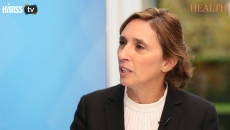Patient Engagement
For Democrats and independents, the trend is more or less flat, with cost satisfaction clocking in at 9% and 25%, respectively.
Duke Clinical Research Institute's Dr. Ann Marie Navar says the health tech industry can't just cater to those who can afford pricey smartphones and wearables, but must instead close gaps in care.
The proliferation of digital personal assistants and other voice interfaces have opened the door for personable AI care platforms, says Stuart Patterson, CEO of LifePod Solutions.
Incentive for healthy behaviors was the biggest demand from those who took the survey, with 46% saying it was missing from their plans.
Sheba Medical Center's head of the innovation center for digital health Dr. Nathalie Bloch discusses creating the right infrastructure to implement technology solutions by partnering with startups and established companies.
Medable Director of Research Jena Daniels discusses how digital trial technologies can streamline clinical research and improve the patient experience.
Remote monitoring technologies are enabling patients to manage their healthcare from their homes, says Charles Parker, principal of Escentium Consulting.
Most patients showed willingness to use apps and online scheduling systems, but they were a lower priority than quality interactions.
University of Pittsburgh Professor Lora Burke explains why encouraging health skills is increasingly difficult in today's landscape.
In our first episode of "When It Works," intracranial hematoma patient Danielle Collins and George Washington University Hospital's Dr. Walter Jean share how surgical theater helped Collins comprehend her condition.






